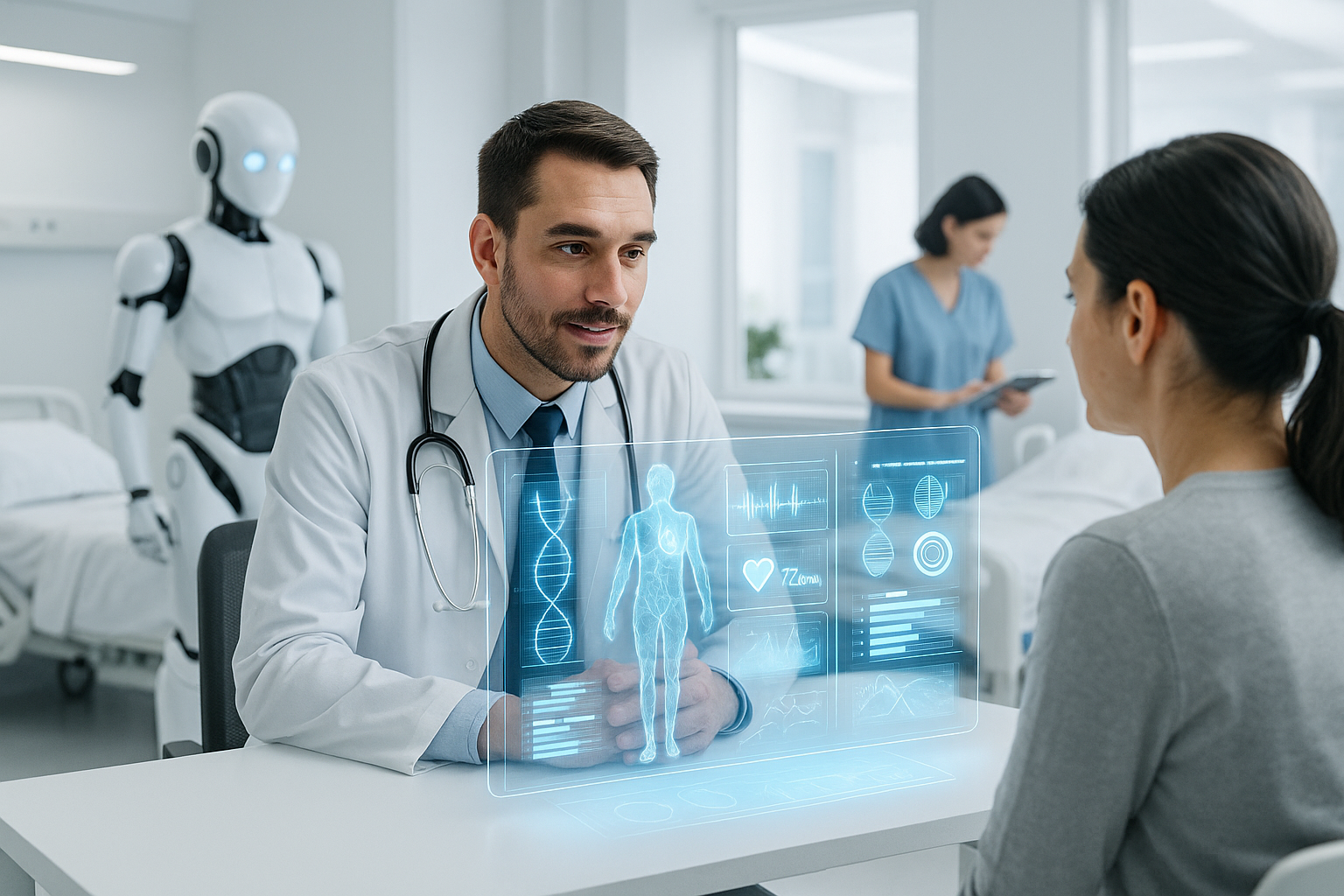Artificial Intelligence (AI) is no longer a distant promise in the world of healthcare — it's here, and it's saving lives. From faster diagnostics to precision treatments, AI is changing the game for patients, practitioners, and researchers alike.
In this article, we’ll explore how AI is revolutionizing healthcare delivery and medical research, and what that means for the future of medicine.
🔍 Smarter Diagnostics: When AI Sees What Humans Miss
AI excels at pattern recognition — and in medical diagnostics, that’s a game-changer.
Opinion: “AI won’t replace doctors, but doctors who use AI will replace those who don’t.” — Eric Topol, MD, Author of Deep Medicine
Deep learning systems like Google DeepMind have already outperformed radiologists in detecting breast cancer in mammograms. Other AI platforms, like PathAI, are used to analyze pathology slides with remarkable accuracy.
This doesn’t just improve diagnosis — it accelerates it, leading to earlier interventions and better outcomes.
🧬 Personalized Medicine: Your DNA, Your Treatment
AI makes it possible to tailor treatments based on a patient’s genetics, lifestyle, and real-time health data — a field known as precision medicine.
Companies like Tempus and Foundation Medicine are using AI to recommend personalized therapies, especially in oncology. These platforms analyze genomic data and match patients with targeted treatments or clinical trials.
Perspective from Novatech: "We're entering an era where medical care will be based not on averages, but on individuals. AI is the key to unlocking that shift."
💊 Drug Discovery: From Decades to Months
Developing a new drug typically takes 10–15 years and billions of dollars. AI is drastically cutting both timelines and costs.
Platforms like Insilico Medicine and BenevolentAI use machine learning to identify novel drug candidates, simulate their effectiveness, and prioritize which compounds should move to clinical trials.
In 2020, Insilico Medicine announced the first AI-designed drug to enter human trials — in under 18 months from discovery.
📊 Remote Monitoring & Predictive Care
Wearables like Apple Watch and Fitbit are now being integrated with AI to continuously monitor heart rate, oxygen levels, and sleep. This data can help predict health events before they happen — like arrhythmias or respiratory issues.
Healthcare providers are also using AI tools like Current Health to manage chronic patients remotely, reducing hospital visits and increasing comfort at home.
🔐 Ethics, Bias & Data Privacy
With innovation comes responsibility. AI in healthcare raises serious questions:
- How do we avoid algorithmic bias?
- How do we protect sensitive patient data?
- Who is accountable when AI makes a bad decision?
Projects like The AI in Health Care Coalition are working to establish ethical frameworks and policies around transparency and fairness in medical AI.
Novatech Take: "Building trust in AI means building systems that are transparent, inclusive, and explainable."
🚀 The Future of AI in Healthcare
Looking forward, here are just a few developments we anticipate in the next 5 years:
- AI-assisted robotic surgeries with real-time decision support.
- Predictive models for pandemics and resource management.
- AI chatbots for mental health, such as Wysa and Woebot.
- Fully automated medical documentation through natural language processing (e.g. Nuance DAX).
The synergy between AI and healthcare is only beginning to unfold.
💬 Final Thoughts: It’s About Empowerment
AI will not replace healthcare professionals — it will empower them.
It will allow doctors to spend more time connecting with patients, and less time on repetitive tasks. It will give researchers tools to accelerate discovery. And it will give patients more personalized, proactive care.

